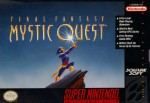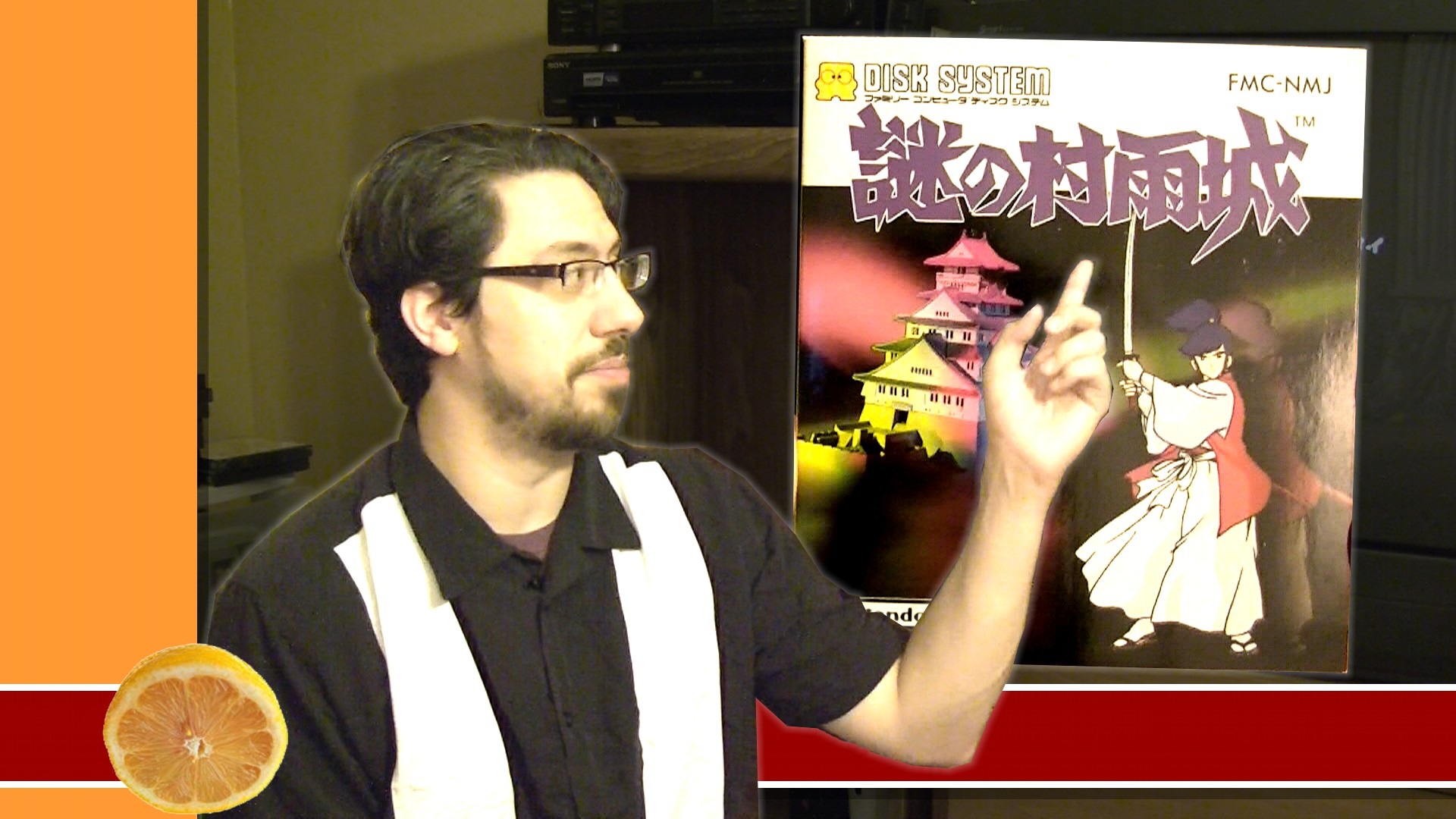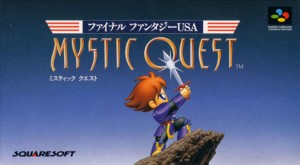Maximum Letdown: Final Fantasy Mystic Quest (SNES)
by William Talley, filed in Games, Maximum Letdown on Mar.08, 2010
 FF XIII hits stores this week. It’s the first FF game to go multiplatform on day one, hitting both Xbox 360 and PS3. Like its predecessors, it will no doubt do huge numbers and will be nominated for many a year-end reward. Is it any wonder? Ever since FF VII, Final Fantasy has enjoyed the mainstream success reserved for American games like Halo, Grand Theft Auto, and Madden. However, during the franchise’s 16-bit it wasn’t always this way. Final Fantasy, along with RPGs in general, had a hard time getting over with an audience that was used to fast-paces sports, action, and fighting games. So to that end, Square theorized that maybe, it’s flagship RPGS were simply too hard for American audiences. So to that end, they released Final Fantasy Mystic Quest. It was aimed at people new to RPGs, so Square decided to ‘dumb it down’ a bit. Problem was, that it ended up getting so dumbed down that it got to a point where it actually insulted the intelligence of the RPG newbies whom it was aimed at.
FF XIII hits stores this week. It’s the first FF game to go multiplatform on day one, hitting both Xbox 360 and PS3. Like its predecessors, it will no doubt do huge numbers and will be nominated for many a year-end reward. Is it any wonder? Ever since FF VII, Final Fantasy has enjoyed the mainstream success reserved for American games like Halo, Grand Theft Auto, and Madden. However, during the franchise’s 16-bit it wasn’t always this way. Final Fantasy, along with RPGs in general, had a hard time getting over with an audience that was used to fast-paces sports, action, and fighting games. So to that end, Square theorized that maybe, it’s flagship RPGS were simply too hard for American audiences. So to that end, they released Final Fantasy Mystic Quest. It was aimed at people new to RPGs, so Square decided to ‘dumb it down’ a bit. Problem was, that it ended up getting so dumbed down that it got to a point where it actually insulted the intelligence of the RPG newbies whom it was aimed at.
Mystic Quest’s story was pretty much as basic as it gets: monsters stole the 4 creatures, and you, the hero, must get them back. As the game is supposed to be for beginners, many of the series staples have either been diminished or eliminated entirely. Instead of a wide open world full of hidden secrets, we get a linear-style interface that holds our hand and leads us on a guided path. Instead of character customization and equipment options, weapons and armor are automatically equipped. Instead of a huge customizable 3 – 4 man party full of multifaceted characters that are interesting in their own right, we only travel with one other companion at the most, and with a few exceptions, these people are simply there to provide an extra set of hands and to move the story forward.
There are a few changes that were for the better though. Players can save anywhere when not in battle, there are no random encounters (as enemies are present on the map), and there are several action-based puzzles. You can use weapons outside of battle to hack down trees, make use of bombs to destroy barriers, and you even gain use of a grappling to cross gaps Zelda-style. The music, while not as memorable as the other FF games, was pretty catchy too.
FFMQ set out to make the RPG genre accessible to newer RPG gamers. Though its intentions were noble enough, one should always remember the ending destination of the road paved with good intentions. It wouldn’t be until years later that FF VII helped bring the RPG mainstream success (and in the process, changing the face of gaming). What burns me up the most about FFMQ is the fact that Final Fantasy V, a much more superior game, could have made it over here instead.
Fun Fact: The Japanese version of FFMQ is known as Final Fantasy USA Mystic Quest. Also in Europe around the time, the Final Fantasy series is known as Mystic Quest. So when FFMQ was released over there, it was titled Mystic Quest Legend.


 PS3
PS3
 Famicom Dojo
Famicom Dojo KEEP PLAYING
KEEP PLAYING KEEP PLAYING: Rewind
KEEP PLAYING: Rewind Powet Toys
Powet Toys Powetcast
Powetcast Hitchhiker's Guide POWETcast
Hitchhiker's Guide POWETcast
















Pingback: Powet Monthly Digest – March 2010 - POWET.TV